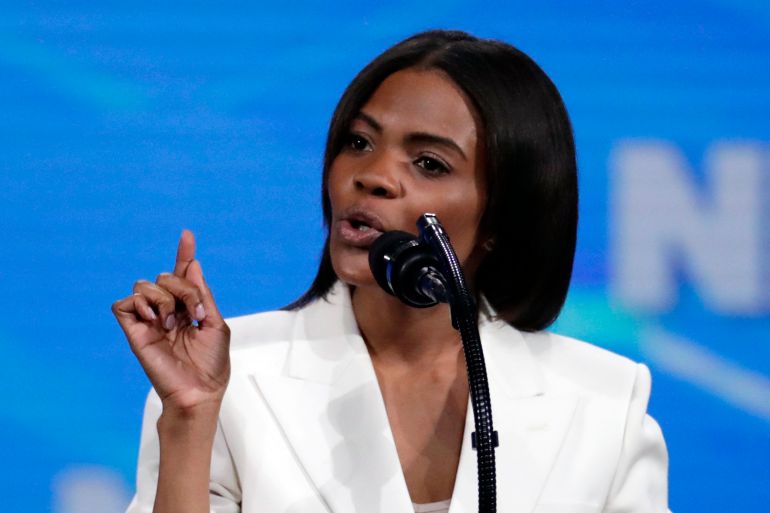Far-right US influencer Candace Owens loses legal fight to enter Australia
Australian minister cited US influencer’s public comments downplaying the Holocaust and making Islamophobic remarks.

By Kevin Doyle and Reuters
Published On 15 Oct 202515 Oct 2025
Save
Far-right American influencer Candace Owens has lost a legal bid to be allowed to enter Australia after a court ruled with the government that granting her a visitor visa could “incite discord in the Australian community”.
The High Court of Australia said in its ruling on Wednesday that the government’s decision to refuse Owens a visa in 2024 “was not invalid” and ordered her to pay the government’s legal costs in the case.
Recommended Stories
list of 4 itemsend of list
The court “unanimously” ruled that the article in Australia’s Migration Act used by the government against Owens “applies where, in the event that the person were allowed to enter or to remain in Australia, there is a risk that the person would stir up or encourage dissension or strife in the Australian community, or a segment of that community”.
Owens, a well-known right-wing podcast host and political pundit who has built a large online following for controversial views and conspiracy theories, applied for an Australian visa to undertake a commercial speaking tour in November 2024.
Australia’s Home Affairs Minister Tony Burke – who has the powers to deny noncitizens entry based on a “character test” – rejected Owens’s application in October 2024 due to the risk of her views “leading to increased hostility and violent or radical action”.
Burke had cited her public comments on the Holocaust and other Islamophobic remarks.
“From downplaying the impact of the Holocaust with comments about Mengele through to claims that Muslims started slavery, Candace Owens has the capacity to incite discord in almost every direction,” the minister said last year, according to Australia’s Herald Sun news outlet, referring to Josef Mengele, the Nazi physician who conducted experiments on Jewish prisoners at Auschwitz.
Advertisement
Owens appealed the minister’s decision to the High Court on the grounds that refusing her a visa infringed on freedom of political communication, though in Australia – unlike the United States – there is no express constitutional right to free speech.
“The implied freedom is not a ‘personal right’, is not unlimited and is not absolute,” High Court Judges Stephen Gageler, Michelle Gordon and Robert Beech-Jones said in their joint judgement on the case.
The judges noted that Burke had denied Owens a visa after examining her views and comments on areas including antiracism, Black Lives Matter, anti-Semitism, women’s and LGBTQ rights, COVID-19 and anti-vaccination.
Burke had found her views to be “extremist and inflammatory comments towards Muslim, Black, Jewish and LGBTQIA+ communities which generate controversy and hatred”, and the minister concluded that she had failed the “character test” required for a visa and that allowing her into the country would not be in the national interest, the judges said.
Owens’s “submissions should be emphatically rejected”, High Court Judge James Edelman said in a separate judgement.
In July, Australia also cancelled the visa of US rapper Ye, formerly known as Kanye West, over concerns he would have promoted Nazi ideologies in his song “Heil Hitler”.

